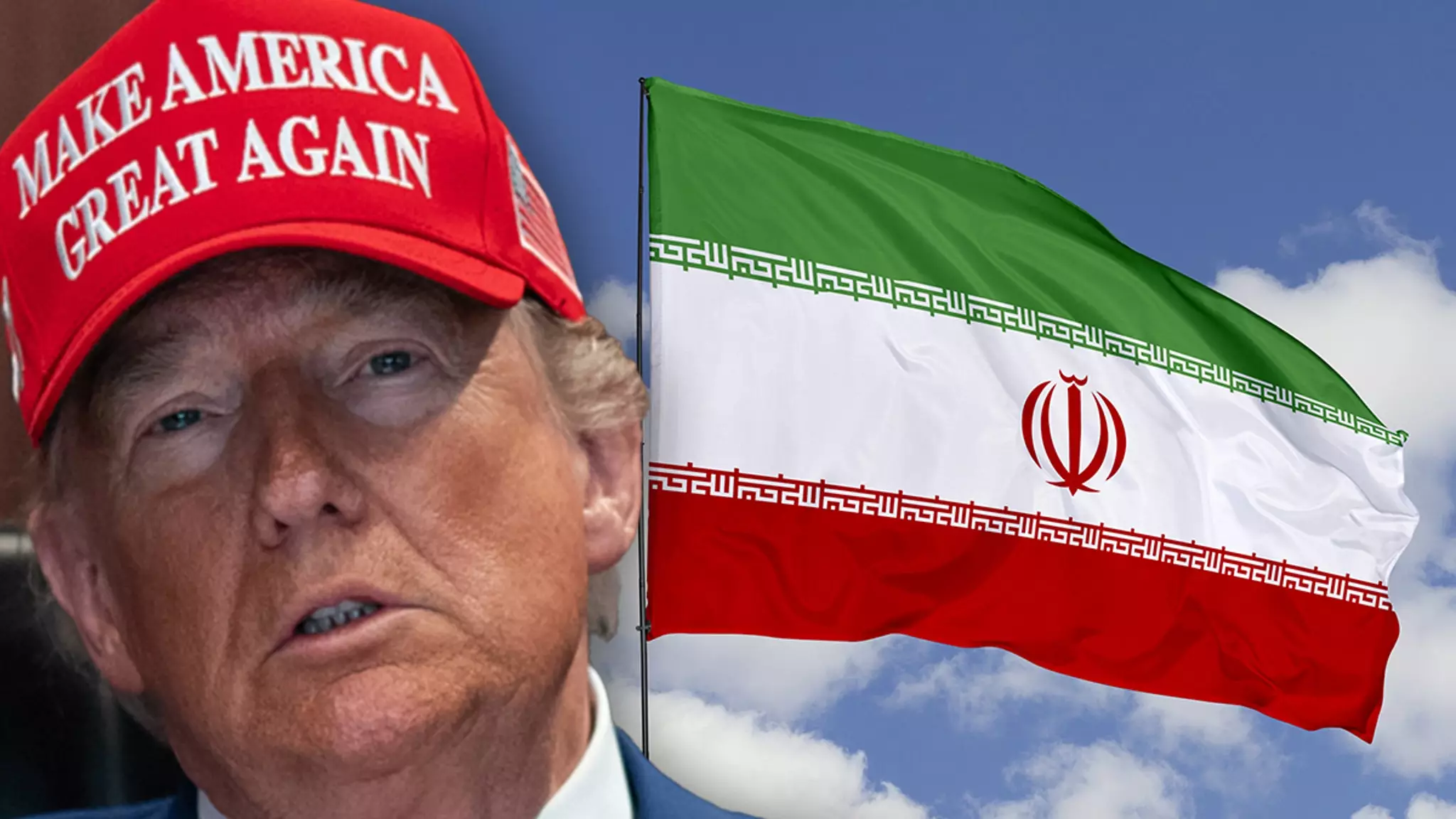In a striking departure from his previous mantra, “America First,” President Donald Trump is now focusing on the geopolitical landscape of Iran. His recent provocations on Truth Social following a pivotal bombing incident signal a dramatic shift in his administration’s rhetoric. Utilizing the slogan “Make Iran Great Again,” Trump has ignited discussions around the contentious issue of regime change, suggesting that if the current government fails to elevate Iran’s status, a change may be warranted.
Provocative Statements and Political Implications
Trump’s suggestion for a potential regime change in Iran is not merely a casual remark; it represents a substantial repositioning of his administration’s stance towards one of the most volatile regions in the world. By directly linking his willingness to consider regime change with the slogan that resonated during his presidential campaign, Trump appears to be creating a narrative that appeals to both his base and to those disenchanted with the Iranian regime. However, it’s crucial to scrutinize whether this type of rhetoric could incite unrest or violence rather than engender positive change.
Secretary of Defense Pete Hegseth, in contrast, has articulated a more restrained approach, emphasizing that the immediate goal of the recent military action was not to alter the Iranian government but to neutralize threats to American and allied security posed by nuclear facilities. This pulling back from an aggressive stance toward regime change reveals a discord within Trumps administration and raises questions about consistent policy direction.
Impact on U.S.-Iran Relations
The implications of Trump’s statements are profound. As the U.S. seeks to navigate a complex relationship with Iran marked by historical grievances, military confrontations, and advocacy for democracy, the specter of regime change looms large. Trump’s casual airing of such ideas not only risks escalating tensions but also complicates diplomatic efforts that are crucial in the context of nuclear negotiations. His rhetoric may polarize these discussions, making it increasingly difficult for any administration—regardless of its political affiliation—to engage meaningfully with Iranian leadership.
Moreover, the potential for backlash within Iran is significant. While Trump’s supporters may cheer the call for change, the ramifications could resonate poorly among Iranian citizens who are already facing oppressive state measures against freedom of expression. The creation of a divisive narrative could solidify hardline factions within Iran and ridicule moderates who seek reform from within.
A Fragile International Landscape
As tensions rise and rhetoric grows increasingly aggressive, it’s worth considering the fragility of our international relationships in an era marked by misinformation and uncertainty. Trump’s casual invocation of regime change on social media could be interpretive of a more profound challenge facing not just the U.S. but global stability. The stakes continue to rise, and unrelenting pressure could lead to severe consequences not only for Iran but for the broader Middle East region.
The implications of ramifications are far-reaching; increased military actions must be evaluated not just for their immediate security outcomes but for their lasting socio-political impacts on the region. In this volatile environment, Trump’s foray into fundamentally reshaping a nation’s governance raises more questions than it answers—pushing the boundaries of acceptable political discourse and reigniting debates that carry the potential for significant repercussions.

